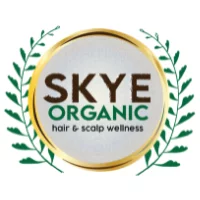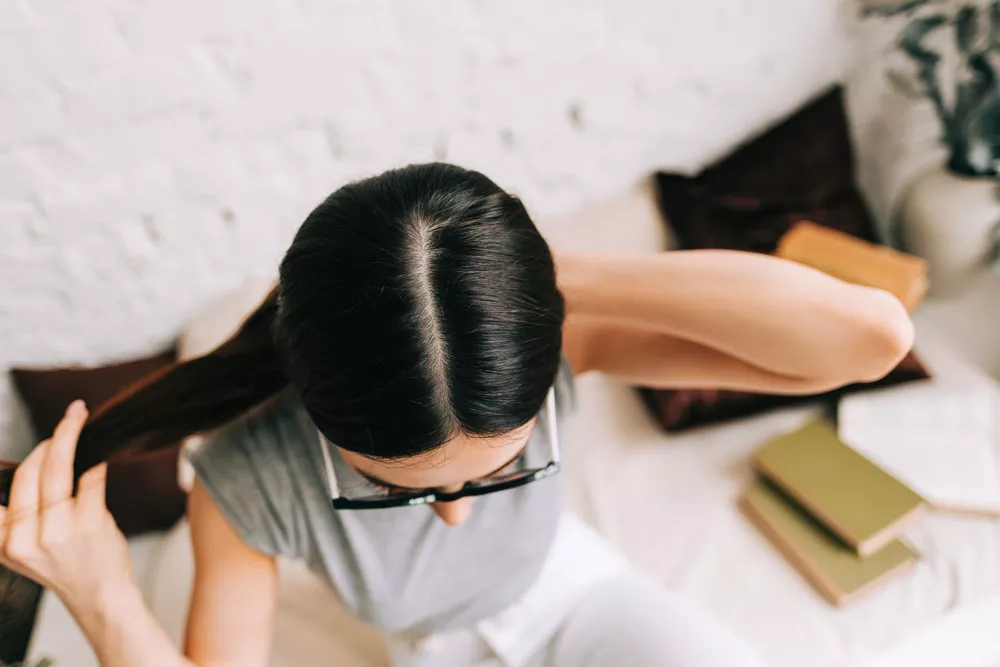When it comes to hair care, many people focus solely on the strands themselves, neglecting the health of the scalp underneath. However, a healthy scalp is essential for healthy hair growth and overall hair health, and regular scalp treatments can help to maintain this health.
Understanding the Scalp
The scalp is the skin on the top of our head that supports our hair. It contains hair follicles, sebaceous glands, and sweat glands.
The hair follicles are responsible for producing hair, while the sebaceous glands produce sebum, which is the natural oil that keeps our hair moisturised. The sweat glands help to regulate our body temperature.
The scalp is also home to many microorganisms, including bacteria and fungi. While some of these microorganisms are beneficial, others can cause scalp problems, such as dandruff, scalp acne, and fungal infections.
Importance of Regular Scalp Treatments
Regular scalp treatments are essential for maintaining a healthy scalp. They can help to remove buildup, unclog pores, and promote healthy hair growth. Here are some of the benefits of regular scalp treatments:
- Promotes Healthy Hair Growth: Regular scalp treatments can help to stimulate blood flow to the scalp, which can promote healthy hair growth. Massaging the scalp during a treatment can also help to increase the production of sebum, which can keep hair moisturised and prevent breakage.
- Removes Buildup: Over time, products such as hairspray, gel, and dry shampoo can build up on the scalp, causing it to become clogged. Scalp Treatments can help to remove this buildup and unclog pores, allowing hair to grow freely.
- Prevents Dandruff: Dandruff is a common scalp condition that causes flakes of dead skin to appear on the scalp and hair. Regular scalp treatments can help to prevent dandruff by removing dead skin cells and excess oil from the scalp.
- Reduces Scalp Acne: Scalp acne is caused by the buildup of oil, dead skin cells, and bacteria on the scalp. Regular scalp treatments can help to remove this buildup and reduce the occurrence of scalp acne.
- Treats Fungal Infections: Fungal infections can occur on the scalp, causing itching, redness, and flaking. Many scalp treatments can help to prevent and treat fungal infections by keeping the scalp clean and healthy.
Types of Scalp Treatments
There are several types of scalp treatments that you can do at home or at a salon. Here are some of the most popular treatments:
- Scalp Massage: Skye Organic Scalp Treatments include scalp massage, which is a simple and effective way to promote healthy hair growth and improve scalp health. You can do a scalp massage yourself or have a professional do it for you. Simply use your fingertips to massage your scalp in circular motions for a few minutes each day.
- Scalp Scrubs: Scalp scrubs are another popular treatment that can help to remove buildup and unclog pores. You can make your own scalp scrub using ingredients such as sugar, salt, or baking soda, or you can purchase a pre-made scalp scrub.
- Hot Oil Treatments: Hot oil treatments are a great way to moisturise the scalp and prevent breakage. Simply heat up a natural oil such as coconut or olive oil and apply it to your scalp and hair. Leave it on for 30 minutes to an hour before rinsing it out.
- Organic Hair Loss Treatment and scalp treatments are becoming increasingly popular among people who are looking for natural solutions to hair loss and scalp issues. It is made from natural ingredients and is free from harmful chemicals that can damage hair and scalp. This treatment works by stimulating blood flow to the scalp, which helps to deliver essential nutrients to the hair follicles.
- Clay Masks: Clay masks are another popular scalp treatment that can help to remove buildup and unclog pores. They work by absorbing excess oil and impurities from the scalp. You can make your own clay mask using ingredients such as bentonite clay or rhassoul clay.
Tips for Maintaining a Healthy Scalp
In addition to Skye Organic Scalp Treatments, there are several things you can do to maintain a healthy scalp. Here are some tips:
- Wash your hair regularly: Washing your hair regularly can help to remove buildup and prevent scalp problems. However, be careful not to over-wash your hair, as this can strip it of its natural oils.
- Use a gentle shampoo: Use a gentle shampoo that is free of harsh chemicals and sulphates. Look for shampoos that contain natural ingredients such as tea tree oil or peppermint oil, which can help to soothe the scalp.
- Avoid heat styling: Heat styling tools such as flat irons and curling irons can damage the hair and scalp. Try to limit your use of these tools and use a heat protectant spray when you do use them.
- Eat a healthy diet: Eating a healthy diet that is rich in vitamins and minerals can help to promote healthy hair growth and scalp health. Be sure to eat plenty of fruits, vegetables, lean proteins, and healthy fats.
- Protect your scalp from the sun: Just like your skin, your scalp can be damaged by the sun’s harmful UV rays. Wear a hat or use a sunscreen specifically designed for the scalp to protect it from the sun.
- Avoid tight hairstyles: Tight hairstyles such as braids, ponytails, and buns can pull on the hair and scalp, causing damage. Try to avoid these hairstyles or wear them loosely.
- Manage stress: Stress can have a negative impact on your overall health, including your scalp health. Try to manage your stress levels through activities such as yoga, meditation, or exercise.
How Often to Treat Your Scalp
The frequency of scalp treatments depends on your hair type and scalp condition. If you have a dry or flaky scalp, you may benefit from a weekly session of dry itchy scalp treatment.
If your scalp is relatively healthy, you can go for Skye Organic Scalp Treatments every two weeks to once a month.
When to Seek Professional Help
Scalp Treatments can help to maintain a healthy scalp, but there are times when you may need to seek professional help. Here are some signs that you should see a dermatologist or trichologist:
- Persistent Itching: If you have persistent itching on your scalp, it could be a sign of a scalp condition such as psoriasis or seborrheic dermatitis.
- Hair Loss: If you are experiencing hair loss or thinning, it could be a sign of a scalp condition or a hormonal imbalance.
- Flaking or Scaling: If you have flaking or scaling on your scalp, it could be a sign of dandruff or a fungal infection.
- Scalp Pain: If you are experiencing pain or tenderness on your scalp, it could be a sign of an infection or inflammation.
- Changes in Color or Texture: If you notice changes in the colour or texture of your scalp, it could be a sign of a scalp condition or a reaction to a hair product.
If you are experiencing any of these symptoms, it is important to see a dermatologist or trichologist for a proper diagnosis and treatment plan.
Final Thoughts
Maintaining a healthy scalp is essential for healthy hair growth. Scalp Treatments can help to remove buildup, unclog pores, and promote healthy hair growth. It is also important to take care of your scalp by washing your hair regularly, using a gentle shampoo, and avoiding heat styling.
If you are experiencing any scalp problems, it is important to seek professional help from a dermatologist or trichologist. By taking care of your scalp, you can ensure that your hair stays healthy and beautiful for years to come.

